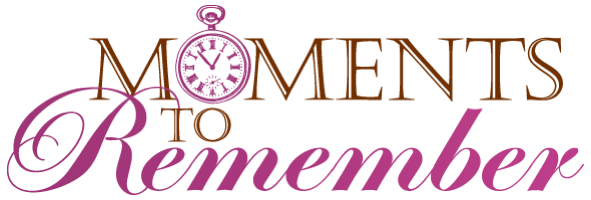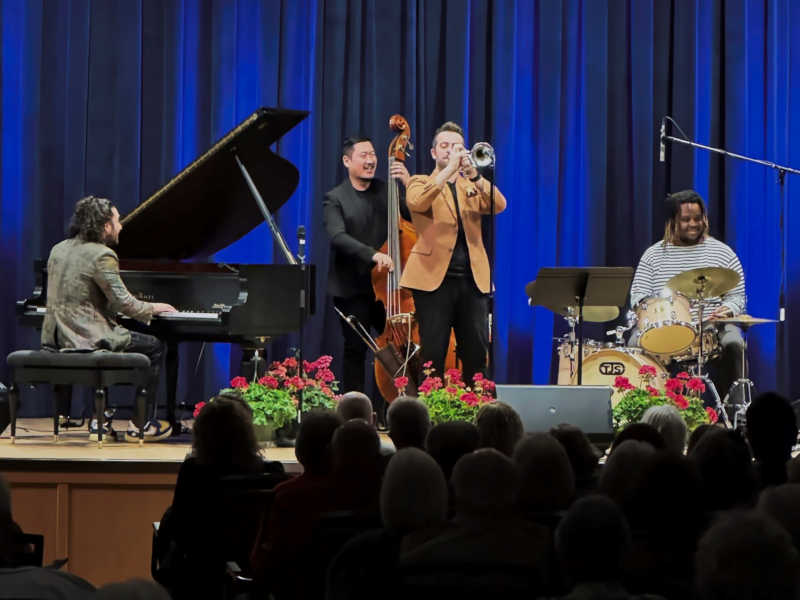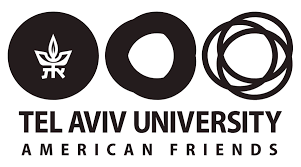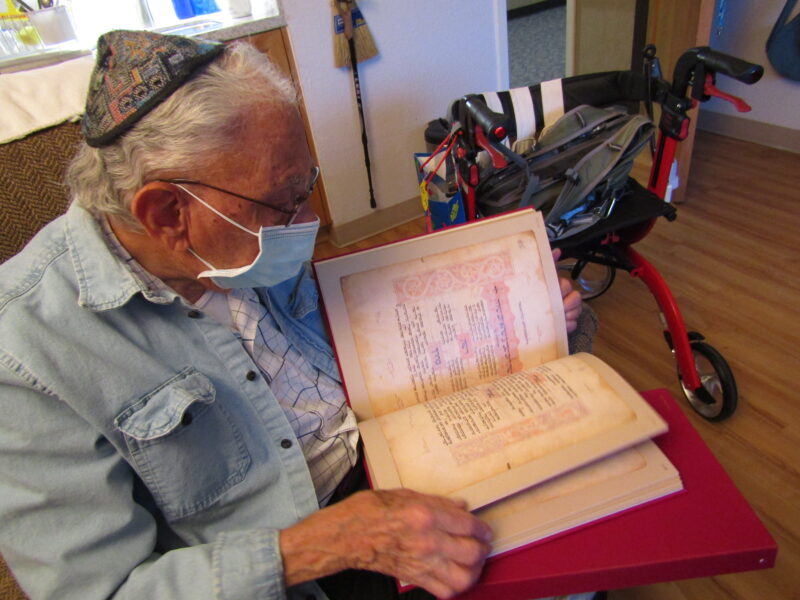We invited a few residents of Sagewood, a senior adult community in Phoenix, to answer the following question: What moment in your history do you most vividly remember?
Their responses, compiled by Contributing Editor Leni Reiss, all reflect thoughtful recollections of memorable life experiences.
BUDDY STEIN
When I was 12 years old and living with my parents in an apartment building in The Bronx, there was a radio on a table in our living room. I used to turn the radio on and crawl under the table to listen. It was Dec. 11, 1941, and President Roosevelt was speaking to the nation. I remember he said that the Japanese had attacked Pearl Harbor in Hawaii and that the only thing we have to fear is fear itself. I ran to my mother and told her I wanted to sign up to fight the Japanese. She calmed me down and said that I was too young to fight. I found solace in reading my favorite Superman comic book.
SUSAN BERK
The year was 1968.
The day: June 6.
The place: Vienna, Austria
I was strolling Philharmoniker Strasse in search of “The Original Sacher-Torte.” All of a sudden, the pedestrian traffic stopped. People were congregating, speaking excitedly while watching and listening to news being transmitted from radios and televisions in shop windows. I stopped dead in my tracks and started to cry uncontrollably. Robert Kennedy had been assassinated. Truly a shot heard round the world.
AHREN SADOFF
Sept. 11, 2001, was the event that had the greatest effect on me. We were living in Ithaca, NY, and that morning I had just finished a round of tennis. When I got home, I heard a brief radio report about a plane hitting the World Trade Center. The news escalated to report on a second plane. It became evident that this was an attack on our country. I immediately thought of my daughter, who lived in Manhattan. My wife that morning had embarked on an annual car trip with friends to Stratford, Ontario, to see some theater. She called from Canada to tell me that Red Cross stations were set up for Canadians to donate blood for survivors. My daughter was able to reach me to assure me that she was fine but frightened. She wanted to come home, but, as a clinical therapist, she decided to stay in New York to treat survivors or anyone who might need help.
To show our patriotic support for our country, we immediately placed an American flag in our window, and it stayed there for a long time.
PAUL ZATULOV
When I was a stockbroker working at the Buffalo office of Merrill Lynch on Nov. 22, 1963, the market was up early, then dropped like a rock, double executing limited sell orders for the same stock when the news of the Kennedy shooting came out. Accounts sold the same stock twice. It took until after 9:30 pm that evening to catch up printing transactions on the tape. More than 13 million shares were traded that day. That volume today for an individual stock would not be enough to include it in the top 10 most active.
SARALY WHITEFIELD
Looking back in time, my first response to the question is the assassination of John F. Kennedy. Pictures of that moment were played and replayed over and over again in the media, and an indelible image is etched in my mind. Some years ago, on a visit to Dallas, TX, I visited the third-floor museum in the Texas School Book Depository and relived that horrific event. Enshrined in the museum are the photos, films, tapes and articles detailing that never to be forgotten moment in history.
BUZZ SINGER
My lifelong wanderlust began when, at an early age, I was given a copy of Richard Halliburton’s Complete Book of Marvels. It had photos of such treasures as the Taj Mahal, Mount Everest, the pyramids and the temples of Angkor Wat in the jungles of Indochina. When I visited Thailand in 1999, the Khmer Rouge still were holding out in the Cambodia jungle around Angkor Wat. Although tourists were allowed, not many came. I decided to make the trip, with the images from the Book of Marvels embedded in my mind.
It was a beastly hot day, and I traveled in a hired car with a driver, guidebook in hand. We were stopped and checked by fully armed soldiers at the entry to Angkor Archaeological Park. My first view of the temples was sudden and full, like a curtain being raised in an opera house to reveal a magnificent set. I was stunned. That moment of sheer revelation has stayed with me since that day.
MARLENE ROSS
On November 22, 1963, I was a second-grade teacher at a New York school walking my students to their bus when the school custodian came running over to me and said, “The President is dead!” I said, “What president? The president of what?” Once he explained, all the teachers ran back into the school to turn on a television set. We watched the news in horror for hours. That marked the end of Camelot. I had been married only four months, and my husband and I spent the first years of our marriage reading every book and attending lectures and speakers on the assassination. My husband was sure that Chief Justice Earl Warren, on his death bed, would reveal details about who was behind Kennedy’s murder. It was a sad day in our home when Warren died without providing the information we had hoped for.
BUDDY PERLMUTTER
I grew up in Washington D.C., which in many ways was the news capital of the world. Everyone knew someone who knew someone who had all the information on anything that was happening. I was twelve years old and the big story was the creation of the Jewish state of Israel. Some friends of my father had approached him to collect arms for the defense of this new state. Israel was surrounded by five enemy states that had warned they would attack and annihilate the Jewish population if statehood were declared. Another big question was whether the United States would recognize the creation of this Jewish state, since President Truman’s cabinet was divided on the question. George Marshall, the Secretary of State and the President’s closest advisor, declared that he would resign if Truman supported statehood.
We also heard that a woman, whose first name was Golda, was part of Israel’s cabinet and was traveling to the United States to raise funds to equip the newly formed defense forces. This raised the question, “Where could they get arms even if the necessary funds were raised since none of the major countries, including the United States, would sell arms to the new state?”
The work of my father and his friends’ collection efforts would not be sufficient to equip an army. Well, Truman talked Marshall out of resigning. Truman’s best buddy from his army days in World War I, who was also his former business partner in Missouri, happened to be Jewish. He came to the oval office to plead for the recognition. That won the day. We listened with great excitement to the United Nations’ vote to recognize Israel. The five neighboring countries did attack and were driven back by the well-equipped Israeli Defense Forces, and the new state and its people survived.
One question that was not answered until a couple of years ago was how the IDF got the necessary arms to defeat the invading armies. My wife and I took a vacation trip that covered the major capitals of eastern Europe, which included the Czech Republic. Passing a government building, we noticed a plaque in English and stopped to read. It said in part, “The people of Israel wish to thank the people of the Czech Republic for supplying our defense forces with the necessary armaments for our war of independence.”
STEVIE SACKS
There are 2 experiences that affected me greatly, one as a teenager and the other as an adult.
The first experience came on Friday, Nov. 22, 1963, just before class was to recess for lunch. The announcement over the PA system left most of us stunned. My parents, along with many other people of that era, had been so optimistic about a president who had fought in World War II, like they had, and was of their generation. It took time to process, and I am not sure when it sunk in that the president had been killed; maybe watching the news that night with pictures of LBJ being sworn in, I don’t know. What I know is that this was the first time I had, as a young person, had to deal with death, especially death that was not, and is still not, understood.
The next time my understanding of the world changed drastically, along with every American’s was Sept. 11, 2001. There is little one can say about that day, most heard through a ripple effect as people caught the news on their computers, one plane, then another, then confusion. I was in an office building where there were large screen TVs in an atrium area, and many flocked to those to see the carnage. The unbelievable had happened, again. Indeed, the weeks and months after changed most of us, our perceptions of our safety, and the threat from terrorists living halfway across the world.
(Stevie is not a resident at Sagewood.)






